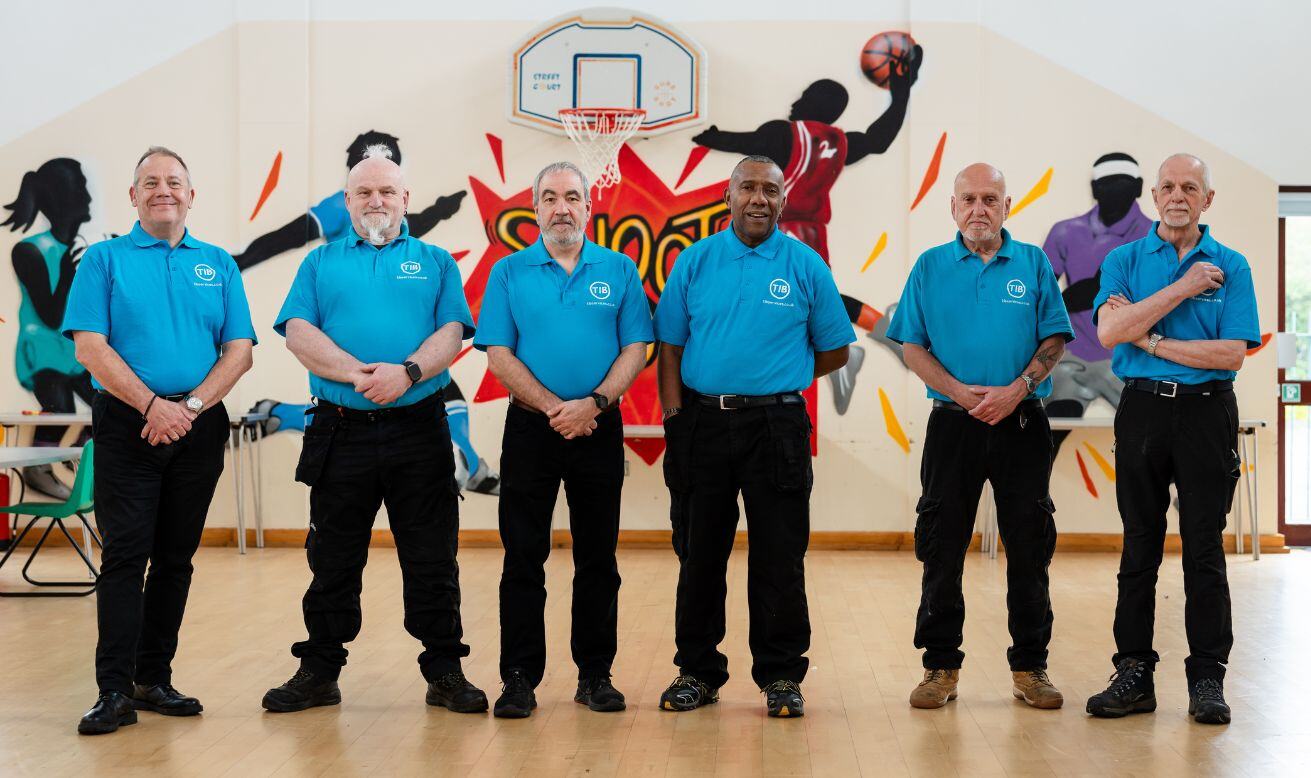- Home
- Candidate Resource Hub
- Changing Careers? Why School Caretaking Could Be Your Next Step
Changing Careers? Why School Caretaking Could Be Your Next Step
Thinking about a career change? If you’re looking for a role that makes the most of your practical skills, problem-solving ability, and life experience, becoming a school caretaker could be the perfect next step.
At TIB Services, we support people from all backgrounds — including engineering, the Armed Forces, emergency services, and trades — to transition into school caretaker jobs across the UK. Your skills are not just transferable — they’re highly valued.

Contents
Why change careers into school caretaking?
School caretakers are vital to the smooth running of schools, helping to create safe, clean, and welcoming environments for children to learn and grow.
Here’s why many mature people choose to transition into this role with TIB:
- Community impact – Your work directly contributes to a safe and well-maintained school environment, helping students and teachers thrive.
- Job variety: No two days are the same, with tasks ranging from maintenance and repairs to site security and event support.
- Flexible opportunities – Choose work that fits your lifestyle, with full-time, part-time, temporary, and permanent roles available.
- Fair compensation – Reliable pay, mileage for over 10 miles, rolled-up holiday pay, pension contributions (where applicable) and paid lunch breaks on full days.
- Free training and checks – Courses in safeguarding, compliance and health & safety, plus an Enhanced DBS check, all at no cost to you.
If you’re ready for a role where your work genuinely makes a difference, school caretaking is well worth considering.

What skills are transferable to school caretaker jobs?
If you’re thinking about transitioning careers, you might be surprised how many of your existing skills are a strong match for school caretaker roles. These include:
- Practical skills: Candidates must demonstrate competency in maintenance, repairs, and other hands-on tasks essential to keep a school running smoothly.
- Problem-solving and initiative: Quickly resolving issues across the school site.
- Community spirit: Schools thrive when caretakers feel invested in their role as part of the broader team.
- Adaptability: A good caretaker can respond swiftly to unexpected challenges and adjust to the dynamic environment of a school.
- Teamwork and communication: Clear and professional communication with staff, students, and external contractors is crucial.
No direct experience of school caretaking is required. In fact, many of our school caretakers come from different professional backgrounds that require practical skills, responsibility, and adaptability. Examples of some of the industries that translate very well into school caretaking include:
- Trades (electricians, plumbers, carpenters, general maintenance) – Hands-on, practical skills are essential for keeping school buildings in top condition. Read more on transitioning from a trade here.
- Engineering – Problem-solving and technical know-how are invaluable in a school setting. Read more on transitioning from engineering.
- Police – Experience in security, discipline, and working with the community makes former police officers a great fit. Read more on transitioning from the police.
- Military – Teamwork, reliability, and adaptability are highly sought-after qualities. Read more on transitioning from the military.
- Plus many more.
Even if you haven't worked in a school before, your experience in practical, hands-on roles could make you an excellent fit.

Leigh: A career change success story
Before joining TIB, Leigh spent over 20 years in the print industry, but decided it was time for a career change. That’s when he discovered the rewarding potential of caretaking in local schools. For him, the main benefits include the ability to make a meaningful difference while balancing work and home life.
“It’s a genuine opportunity for somebody to change their career”
A role where experience is highly valued
At TIB Services, we champion age inclusivity and are proud to be a Rest Less Age Inclusive Employer. Our work with mature job seekers was recently recognised at the Recruiter Awards, where judges praised our support for those transitioning into new careers.
We know that people over 50 bring a wealth of knowledge, reliability, and problem-solving skills to school caretaking. Whether you’re retired, semi-retired, or looking for a new purpose, this could be the perfect opportunity.

How to take the next step
Career change isn’t just possible—it’s exciting. If you’re ready to explore a role that offers flexibility, purpose, and community impact, school caretaking could be for you.
Explore career transition advice tailored to your background and hear from others who have made the switch.
Or, if you’re ready to find opportunities near you, sign up with TIB Services for local job alerts.
You can change careers while changing lives—and we’re here to help.





